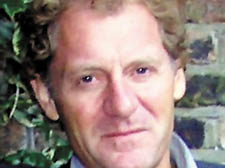|
|
 |
| |

Andrew Motion |
The Poet Laureate prepares for a life back in Civvy St
POET Laureate Andrew Motion steps down from the role in May after his 10-year tenure, and he says he is looking forward to writing in his own time and on topics of his own choosing.
“One of the peculiar things about the post is its high public profile,” he says. “It creates a certain paradox. It attracts a lot of public interest, but it is writing to order.”
Mr Motion, who lives in Camden Town, recalls being asked to pen a piece on the Queens Golden Wedding –and how it was received.
“You cannot really wait and hope something just to pop up, you have to write to order and that is a different type of writing than personal poetry,” he says. “For example, there are people who have different views on the Royal Family – they do not want there to be a Royal Family, full stop, which means if they are a subject matter they won’t like your work.”
He has some advice to pass on to his successor, who has yet to be chosen.
“You are the public face of poetry, and the first thing is you need a lot of energy,” he says.
The role is not just about marking public events with verse, but promoting poetry in schools and colleges.
“You spend a lot of time visiting schools, opening libraries, talking about education policy,” he says.
“You have to help people understand how to approach poetry. People leave school having had a bad experience of poetry. This needs to be addressed and thought about. There is not a biological reaction against it. We need to think more how to include accessible poetry into the curriculum.”
As well as campaigning to shape the way English is taught, he has done his fair share of public engagements, and his legacy can partly be found in an new online resource, the poetry archive, which he worked to establish.
It features hundreds of poets reading their own works.
And he will be reading from his new book next Thursday at the Irish Centre in Camden Square to raise funds for the Camden Labour Party, of which he is a member.
His new book, The Cinder Path, contains poems “both ancient and modern”.
“I have taken this opportunity to get these poems together which are not about public stuff,” he says.
The book does contain a series of poems about the oldest surviving Tommy who saw combat in the Great War, Harry Patch, but mainly they are personal. “They are about childhood, love, about ordinary life,” he says.
It also includes a collection of verse on his father. “He died two and a half years ago and I have not published these pieces about him as yet.”
Dan Carrier
|
| |
|
 |
 |
|
 |
|


